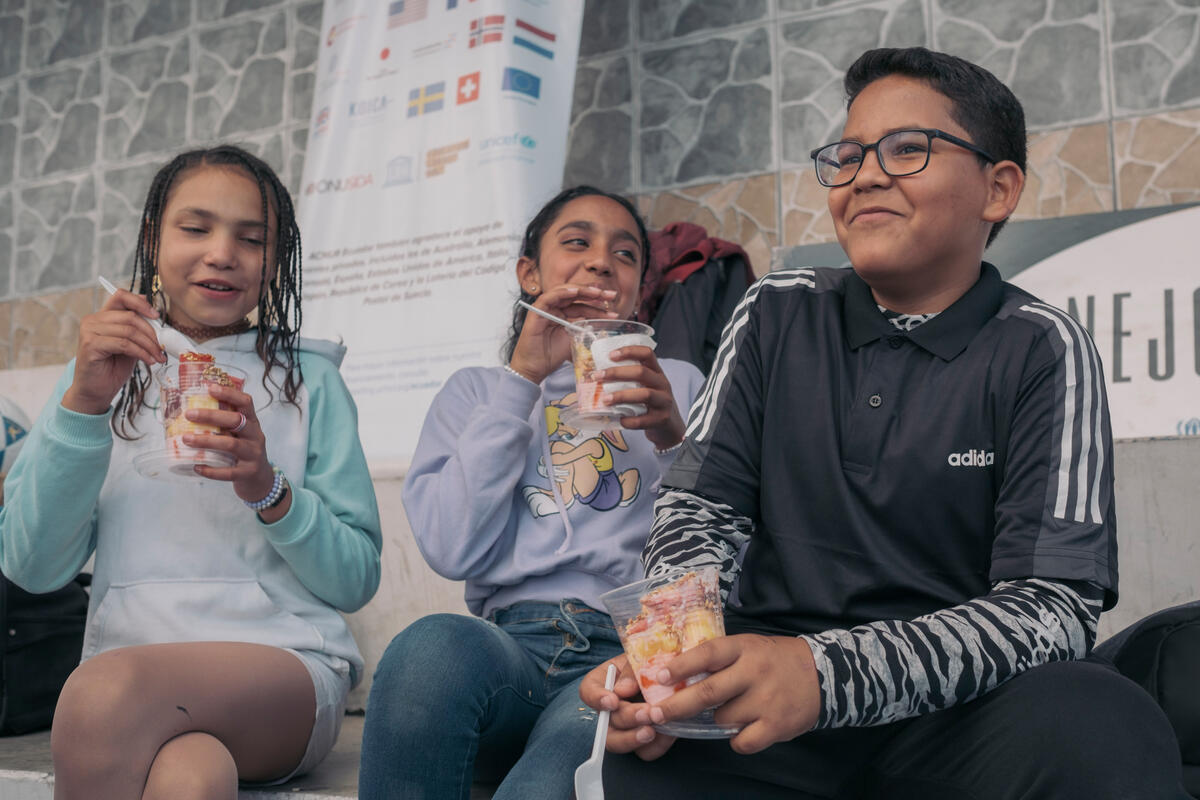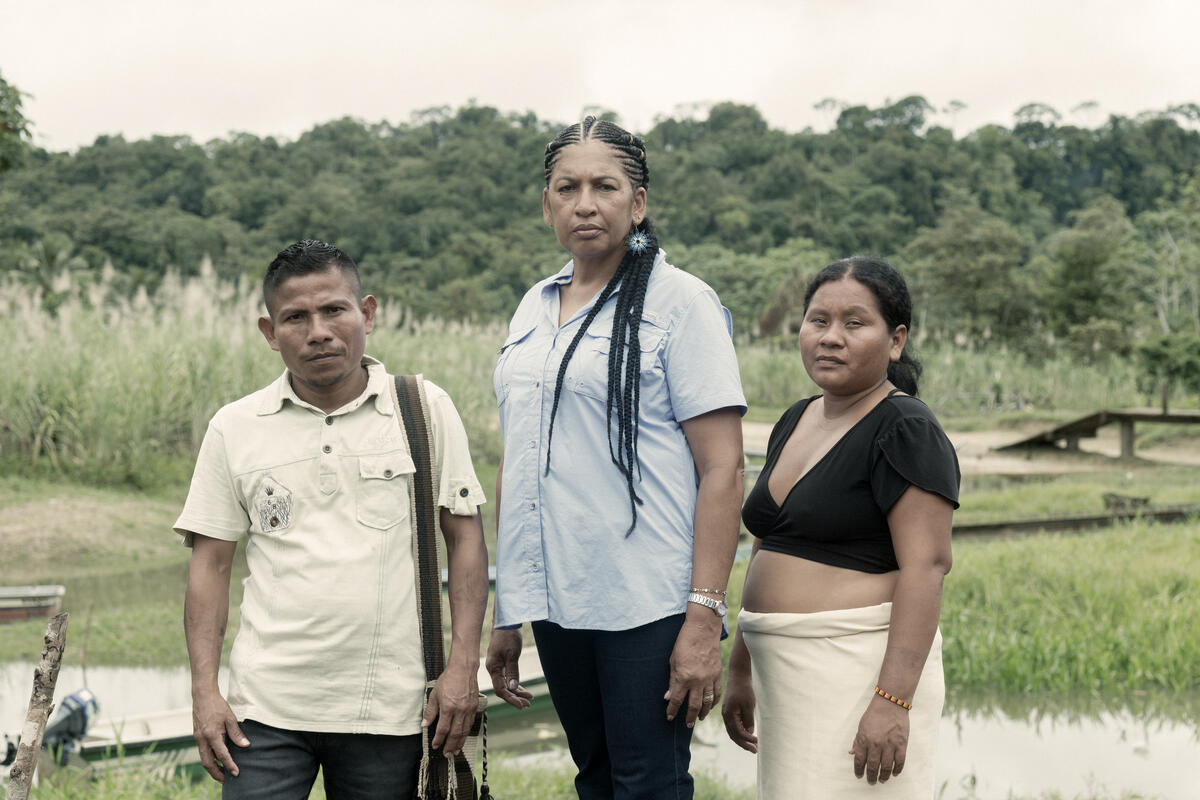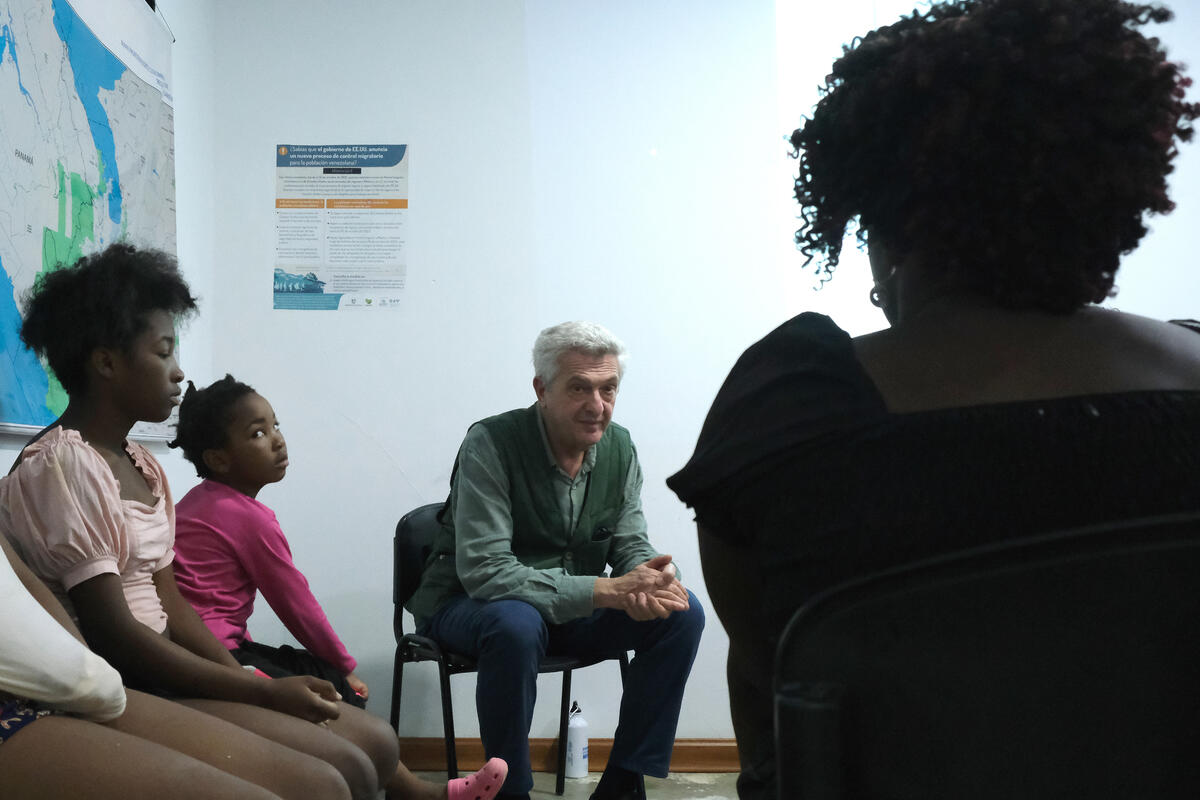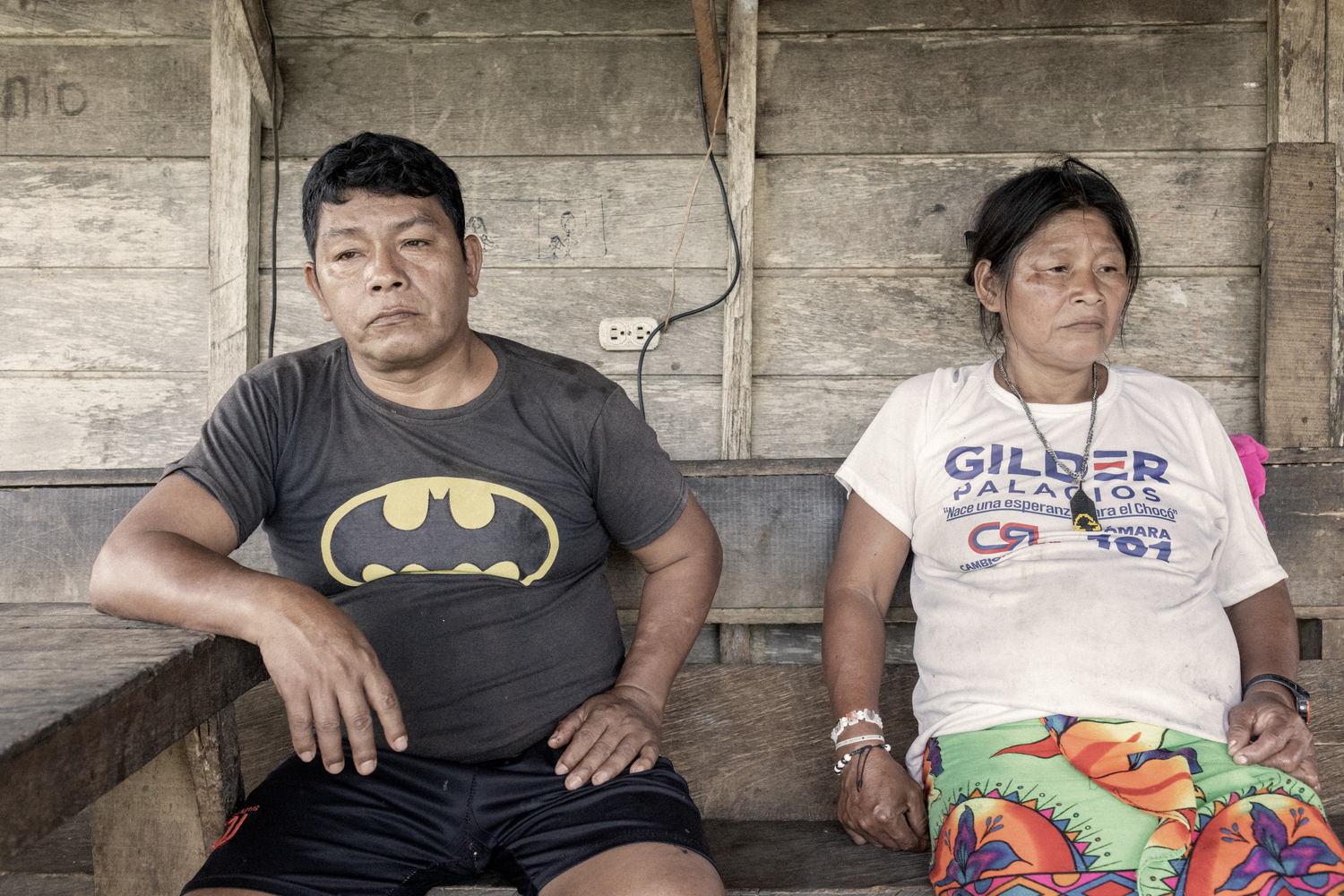Giving credit to Colombian refugees in Ecuador
Giving credit to Colombian refugees in Ecuador

QUITO, Ecuador, May (UNHCR). The "24th May" neighbourhood in Quito is a tough place. Although it is only a stone's throw away from the Ecuadorian capital's beautifully-preserved colonial monuments and churches, you will not see many tourists there. The neighbourhood is best known for petty crime, prostitution and trafficking in stolen goods. Although the local municipal authorities have started a campaign to clean up the streets, the stench of rubbish permeates the air. Unsavoury characters hang around street corners selling fake watches or pushing drugs.
This unlikely place is also home to some families that have escaped the conflict in neighbouring Colombia and are now trying to adjust to life in a country with problems of its own. Only three weeks ago, Ecuador's former President, Lucio Gutiérrez, was deposed, following violent street protests. In the last eight years, Ecuador has had seven rulers. Despite the country's social, political and economic difficulties, a steady flow of refugees has been coming over from Colombia in recent years. Over 30,000 people have sought asylum in Ecuador since 2000, most of them Colombians, and nearly 10,000 have been recognised as refugees.
Doña Susana* is one of them. She left her native Cali three years ago after receiving death threats from an armed group. She came to Quito with her husband and two daughters, now aged nine and 11. "This neighbourhood is not the nicest in Quito," she says. "I worry about the girls walking to school. But we are grateful to be alive and to be given the chance to work."
With the help of a small loan from the "Fundación Ambiente y Sociedad" (Environment and Society Foundation), a UNHCR implementing partner, Doña Susana started a small business selling takeaway food. "I prepare the meals at home and my husband delivers them in a cart. We have many clients in the neighbourhood and can hardly keep up with the demand. We're thinking of buying a second cart."
Thanks to the small loan programme, other Colombian refugees in Ecuador have started other small businesses, like carpentry workshops, bicycle repair shops, small restaurants and shops. Besides providing an income, these small businesses help refugees regain their sense of purpose and their self-respect, thus facilitating their integration into the local community. To qualify for the loans, beneficiaries need to follow basic training courses in business administration and accountancy.
Many refugees have settled in Lago Agrio, a town in the Amazon region, close to the Colombian border. Manuel López* arrived there two years ago. "We had to flee and leave everything behind because of the violence in Colombia," he said. "We arrived with nothing but the clothes on our backs. We had to sleep on the floor. I began making sausages and selling them from door to door."
He adds, "Nothing is easy, everything requires an effort, you have to work very hard in order to improve yourself. Me and my wife worked every day, we still do, but we always had a goal: we always dreamt of having a bakery. And now, after a long time, we have it. Now we'll be able to give our children a better life. And we contribute to this country by giving work to local people."
López benefited from a loan which allowed him to buy equipment for the bakery. "That was a big help," he says, "but the biggest help I received was to be recognised as a refugee. To feel persecuted was a terrible experience. They give you 24 hours to leave the country or they declare you a military target."
"Beneficiaries receive a low interest loan of US$300 to help them start a small business or expand an existing one," explains Flor Prado, coordinator in Lago Agrio of the UNHCR-backed project. "The main objectives of the loans are to improve the economic situation of refugee families and to facilitate their integration. Twenty percent of the beneficiaries are local people. We Ecuadorians live side by side with the refugees and have to learn about their situation in order to understand them and show solidarity to them."
Oscar Butragueño, Head of the UNHCR Field Office in Lago Agrio, adds, "Refugees bring experience and new ideas with them. Before a refugee family began to recycle plastic, metal and cardboard here, nobody in Lago Agrio had thought of doing that."

"People used to laugh at us when they saw us picking up cans from the street," says Teresa Aguilar*, another beneficiary of the small loans project. She, her husband and their three teenage children collect copper, aluminium, plastic, iron and cardboard. "We get paid US$120 for a ton of iron, and twice that for a ton of plastic. Now, instead of laughing, people are beginning to copy us."
* Names changed.
By William Spindler in Ecuador








